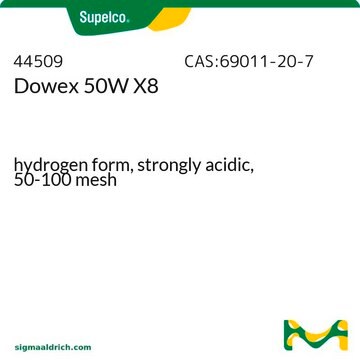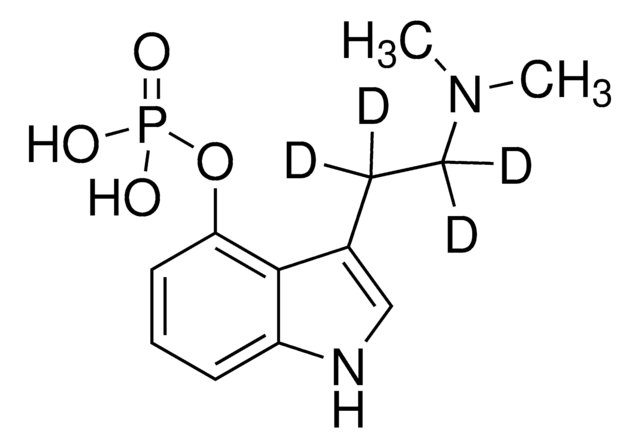2055105
Inlet Liner, Split Type, Cup Design (packed with 10% OV-1 on Chromosorb W HP)
pkg of 5 ea
Sign Into View Organizational & Contract Pricing
All Photos(1)
About This Item
UNSPSC Code:
12000000
Recommended Products
packaging
pkg of 5 ea
L × O.D. × I.D.
78.5 mm × 6.3 mm × 4.0 mm
Looking for similar products? Visit Product Comparison Guide
Related Categories
General description
Inlet liner is an important part within the injection port. The prime functions of inlet liner are to limit sample degradation and improve vaporisation along with correct positioning of syringe needle. A wrong choice of liner can have prominent effect on the chromatogram. The basic problems related with incorrect choice of liner include the higher potential of peak tailing and mass discrimination. The inlet liner volume is recommended to be larger than the amount of sample injected by syringe so as to avoid any reaction with the sample. Injector port liner is suitable to make connection between sample introduction and GC column. Split type has wide bore with 2 or 4 mm I.D. which is suitable for solvent extraction. Cups are used to enable sample mixing.
OV-1 is a modified silicone polymer which has good temperature stability. It is suitable as liquid phases in chromatography. The least polar is a dimethylsilicone which is sold under the mane OV-1.
Chromosorb W, a fragile white solid prepared heating the diatomaceous earth with a flux. The resulting fine structure is cemented over glass which results in large and irregular pores. HP is the classification of a support as high performance grade.
OV-1 is a modified silicone polymer which has good temperature stability. It is suitable as liquid phases in chromatography. The least polar is a dimethylsilicone which is sold under the mane OV-1.
Chromosorb W, a fragile white solid prepared heating the diatomaceous earth with a flux. The resulting fine structure is cemented over glass which results in large and irregular pores. HP is the classification of a support as high performance grade.
Deactivated (silanized) glass inlet liner for capillary injection ports.
- Fits Agilent (5890, 6890, and 7890)
- Fits Finnigan (9001GCQ)
- Fits Varian (CP-1177 Injector)
Signal Word
Danger
Hazard Statements
Precautionary Statements
Hazard Classifications
STOT RE 1 Inhalation
Target Organs
Lungs
Storage Class Code
6.1C - Combustible acute toxic Cat.3 / toxic compounds or compounds which causing chronic effects
WGK
WGK 1
Flash Point(F)
214.0 °F - closed cup
Flash Point(C)
101.1 °C - closed cup
Choose from one of the most recent versions:
Certificates of Analysis (COA)
Lot/Batch Number
Sorry, we don't have COAs for this product available online at this time.
If you need assistance, please contact Customer Support.
Already Own This Product?
Find documentation for the products that you have recently purchased in the Document Library.
Ian A. Fowlis
Gas Chromatography, 27-27 (2008)
Harold M. McNair, James M. Miller
Basic Gas Chromatography (2011)
Robert L. Grob, PhD, Eugene F. Barry, PhD
Modern Practice of Gas Chromatography, 76-76 (2004)
Michelle Groves Carlin, John Richard Dean
Forensic Applications of Gas Chromatography, 9-9 (2013)
Our team of scientists has experience in all areas of research including Life Science, Material Science, Chemical Synthesis, Chromatography, Analytical and many others.
Contact Technical Service








